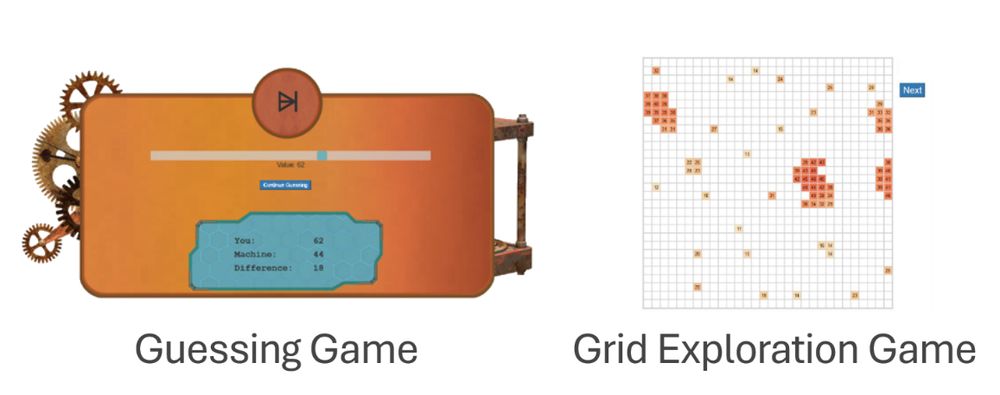Franziska Brändle
@frabraendle.bsky.social
PostDoc at University of Oxford.
Taken together, our results advance our understanding of the dynamics of fun in realistic environments. They also emphasize the importance of using realistic, game-like environments together with highly-controlled experiments to advance our theories of human motivation & learning.
4/4
4/4
October 2, 2025 at 9:32 AM
Taken together, our results advance our understanding of the dynamics of fun in realistic environments. They also emphasize the importance of using realistic, game-like environments together with highly-controlled experiments to advance our theories of human motivation & learning.
4/4
4/4
We found that players preferred levels of intermediate difficulty, but additional factors also emerged: Players’ success and expectations of difficulty seemed to have an influence on their enjoyment. That’s why we created and simulated two controlled paradigms to confirm these factors.
3/4
3/4

October 2, 2025 at 9:32 AM
We found that players preferred levels of intermediate difficulty, but additional factors also emerged: Players’ success and expectations of difficulty seemed to have an influence on their enjoyment. That’s why we created and simulated two controlled paradigms to confirm these factors.
3/4
3/4
Previous studies proposed that people enjoy acting in intermediate difficult environments that provide the most learning progress. However, they mostly focused on simple paradigms. That’s why we use three game datasets with in total ~260.000 levels and ~1.800.000 votes to have a closer look.
2/4
2/4

October 2, 2025 at 9:32 AM
Previous studies proposed that people enjoy acting in intermediate difficult environments that provide the most learning progress. However, they mostly focused on simple paradigms. That’s why we use three game datasets with in total ~260.000 levels and ~1.800.000 votes to have a closer look.
2/4
2/4

